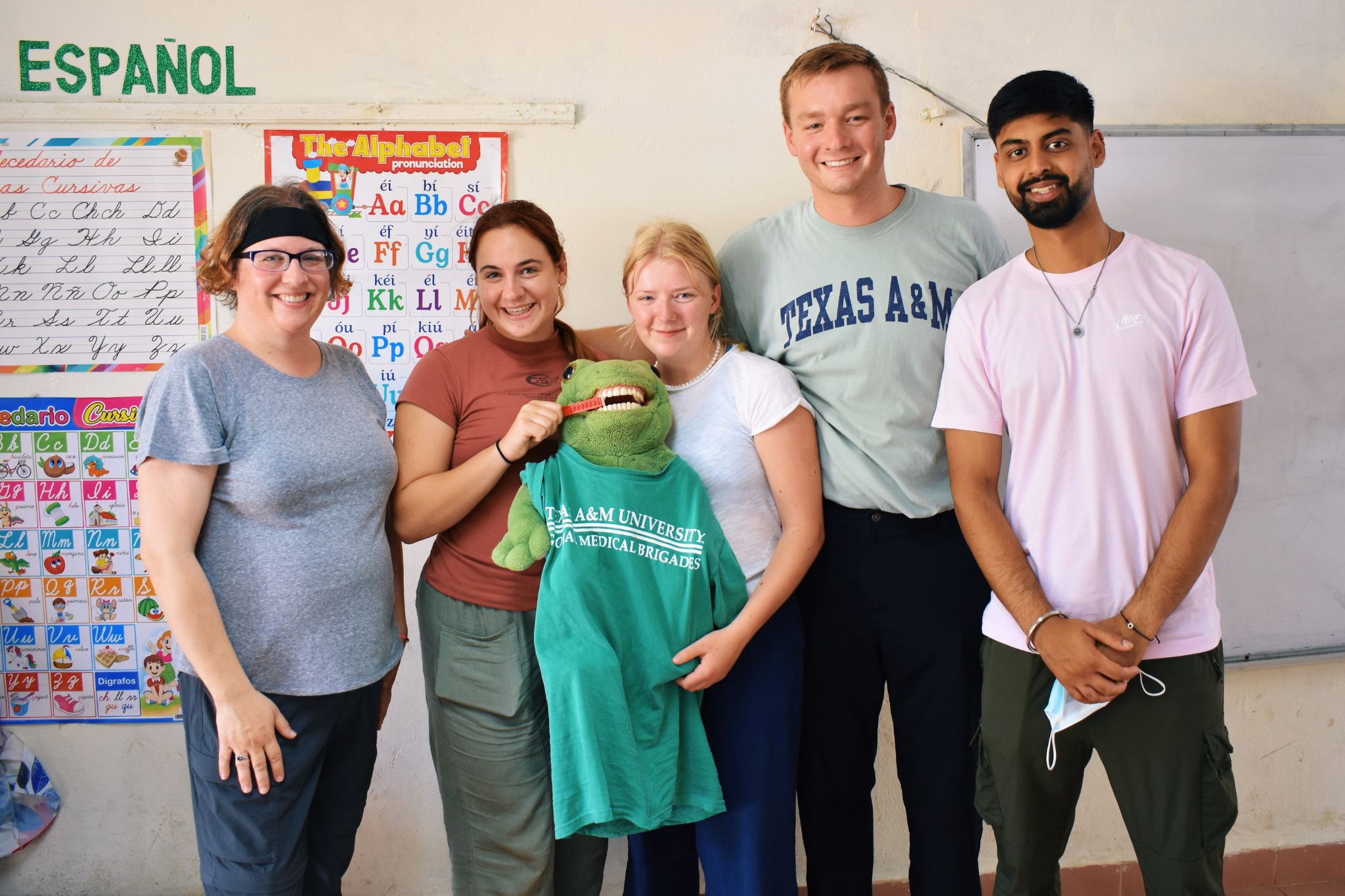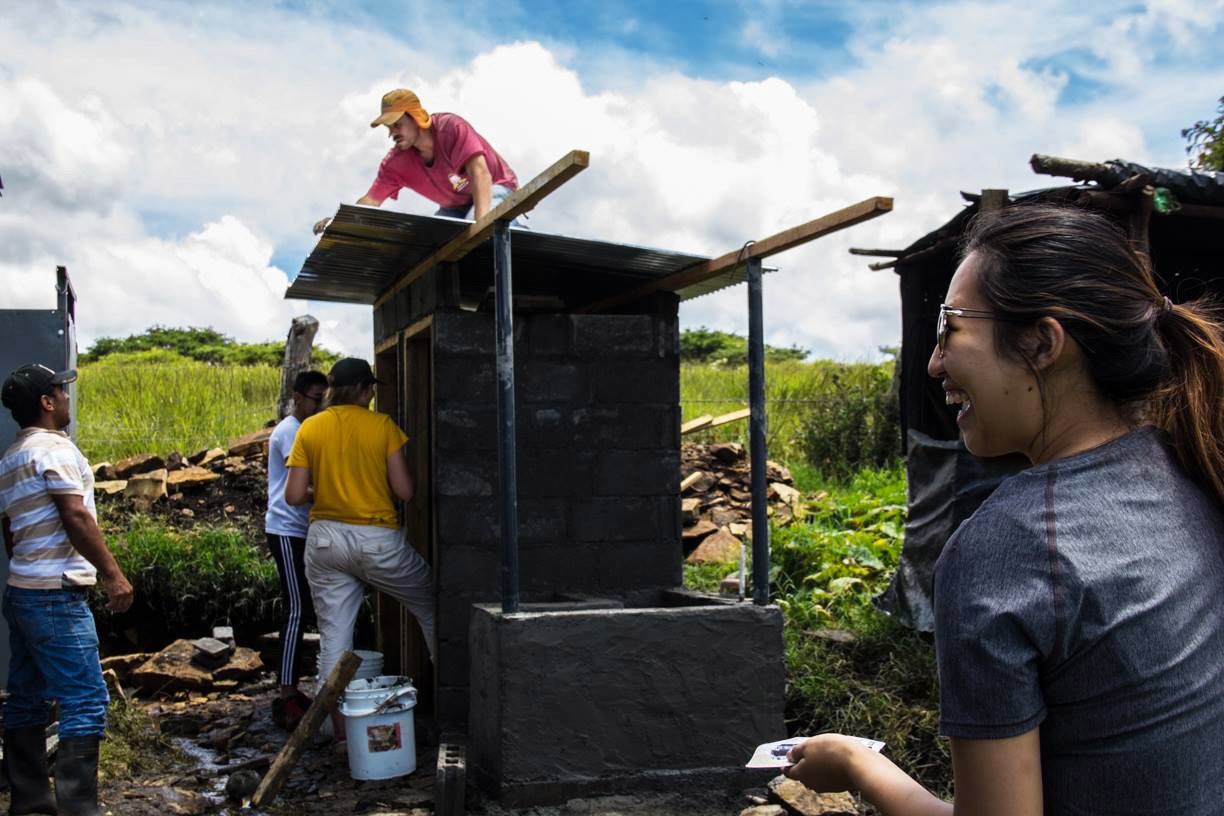The concept of being a citizen of the world has gained significance over the years in our interconnected world. The roots of the idea are solid: We have a a collective responsibility to work together for a brighter future.
Once we understand that truth, we must pursue that ideal in a genuine way.
What is a global citizen? How can we do better as we embrace the idea of global citizenship? Let’s dive into what we mean about being a citizen of the world, its benefits, and practical ways to experience it for yourself.
Learn why we’re the largest student-led movement in global health.
What Is Global Citizenship?
Global citizenship is a term that has been around since Ancient Greece. The philosopher Diogenes embraced early ideas of world citizenship by describing himself as a “citizen of the world” when asked where he was from.
Albert Einstein described himself as a world citizen, too, and spoke out against national citizenship.
Some frequent travelers still go by a similar definition, going so far as to support the idea of a world passport. (For the record, documents from organizations like the World Service Authority aren’t official in any way. We don’t live in a visa-free society.)
The modern concept of global citizenship has evolved to include broader contexts of how we view the international community, human rights, and global activism.
In fact, you can become an educated global citizen without ever stepping foot on an airplane — visa-based travel is actually a privilege in and of itself. But travel is not necessary to be a contributing citizen of the world.
What does it mean to be a global citizen? To be a global citizen means to have an awareness and interest in the global community and global issues. It’s typically centered around 4 main areas: social, environmental, political, and economic action.
That can include advocating for social justice and environmental issues like climate change, extreme poverty, and sustainable healthcare on an international scale. It may also mean challenging stereotypes about different cultures and investing time in learning about different countries.
It can also be about tackling a problem head-on. For those interested in sustainable health systems, learn more about the largest student-led movement for global health.
Benefits of Being a Citizen of the World
We can all benefit from a more informed approach to the world community. Typical characteristics of a global citizen include a willingness to learn about and cooperate with others.
Let’s take a look at a few specific benefits of global citizenship:
- It supports cross-cultural awareness.
- It challenges intolerance and stereotypes.
- It develops empathy and compassion for others.
- It informs perspectives.
- It develops skills in collaboration and collective action.
- It can lead to professional opportunities and expand your network.
- It supports advocacy and sustainability initiatives worldwide.
Global Citizenship in Action
As global citizens, we’re empowered to address global challenges. How we do that is up to us.
On an individual level, you can donate your time and resources to nonprofits that work in global areas of need. You can use your social media for good and raise awareness for global campaigns. You can volunteer with groups that work with refugees on the local level.
You can even embrace sustainable practices in your daily life to support global efforts against climate change.
Global learning doesn’t have to be a solo effort. Many nonprofits and international organizations focus on the concerns of global citizens and more meaningful volunteer experiences abroad.
Global Brigades is one example focused on addressing health and economic disparities with partner communities. Our Medical Brigades for pre-med students push our volunteers out of their comfort zones to develop a global perspective.
If you’re unable to travel but still interested in making an impact in global health, our Medical TeleBrigades are a virtual but still impactful option.
How to Become a Global Citizen
Global citizenship education can be as simple as making a promise to yourself to embrace cultural diversity and sustainability. It can also go deeper with actions that speak to our role as human beings to make our world a better, more interconnected place.
Let’s look at a few ways to be a global citizen:
- Start with your own heritage. Trace back your own roots if you’re able to develop a more personal sense of global awareness.
- Be curious about different parts of the world. Think beyond your own country and develop a global perspective. Embrace interconnectedness.
- Educate yourself about global issues. Learn about issues that shape the policies and politics of the rest of the world. Education is the best defense against ignorance.
- Learn another language. Learning a new language can help you develop cultural sensitivity and an appreciation for cultural differences.
- Travel abroad. Better yet, travel abroad in a more ethical way. Look for opportunities that empower people rather than promote white saviorism or interdependence.
Why Higher Education Is Vital to Global Thinking
Following a COVID slump for international students, study abroad programs and initiatives that send young people on study abroad alternatives are rebounding to pre-pandemic levels.
Snapshot surveys from the Institute of International Education (IIE) show that most U.S. colleges expect an increase in study abroad applications for the 2023-2024 year.
The same survey also showed that about 40% of responding colleges expect to refocus their programs to better align with the United Nations’ Sustainability Development Goals (SDGs).
This means that higher education is taking notice. Study abroad programs should go beyond a fun semester in a new place or even voluntourism. They should be about experiences that embrace global problem-solving, sustainable development goals, and a well-informed worldview.
This is a response to interested global learners, too. Young people who haven’t found meaningful experience in their college programs look for them elsewhere, pursuing gap years abroad with a purpose.
How Global Brigades Is Doing Our Part
At Global Brigades, we want to do more than spark an interest in global citizenship. We partner with communities in countries like Ghana, Guatemala, and Panama to achieve sustainable health and economic goals. It’s about empowerment for our partners and volunteers.
Global Brigades is an international development organization working to enact lasting change. Our holistic approach has garnered recognition from the United Nations for their effective poverty alleviation programming in Panama.
By building public health infrastructure like water systems and bolstering local economies, Global Brigades takes a community-focused approach to development.
Through partnerships and grants from organizations including the World Bank, UNDP, Inter-American Development Bank, and Rotary International, Global Brigades is able to facilitate sustainable programming year-round.
Student volunteers play a key role, working within communities to promote empowerment and capacity building from within. With comprehensive efforts spanning healthcare, economic growth, and infrastructure, Global Brigades takes an integrated approach to uplift communities sustainably.
Are You a College Student? Join a Brigade!
Global Brigades works to resolve health and economic disparities through student-led initiatives in a variety of disciplines. Our volunteers have worked on clean water systems, infrastructure improvements, and business skills training around the world.
If you’re pre-med or interested in sustainable healthcare, join a Medical Brigade. Our student volunteers gain on-the-ground experience in health initiatives and learn about barriers to sustainable health in partner communities.
You can make a tangible impact on global health, supporting a program that increases access to quality healthcare.





